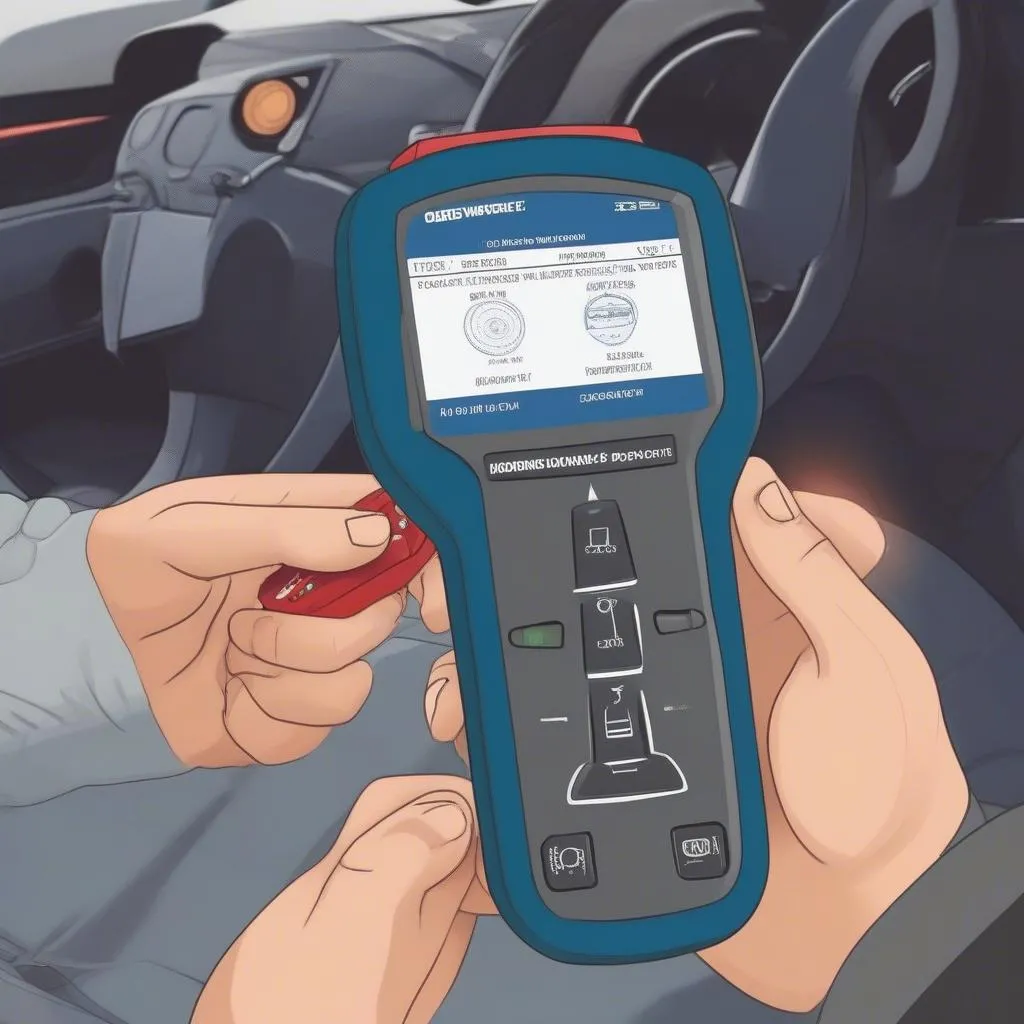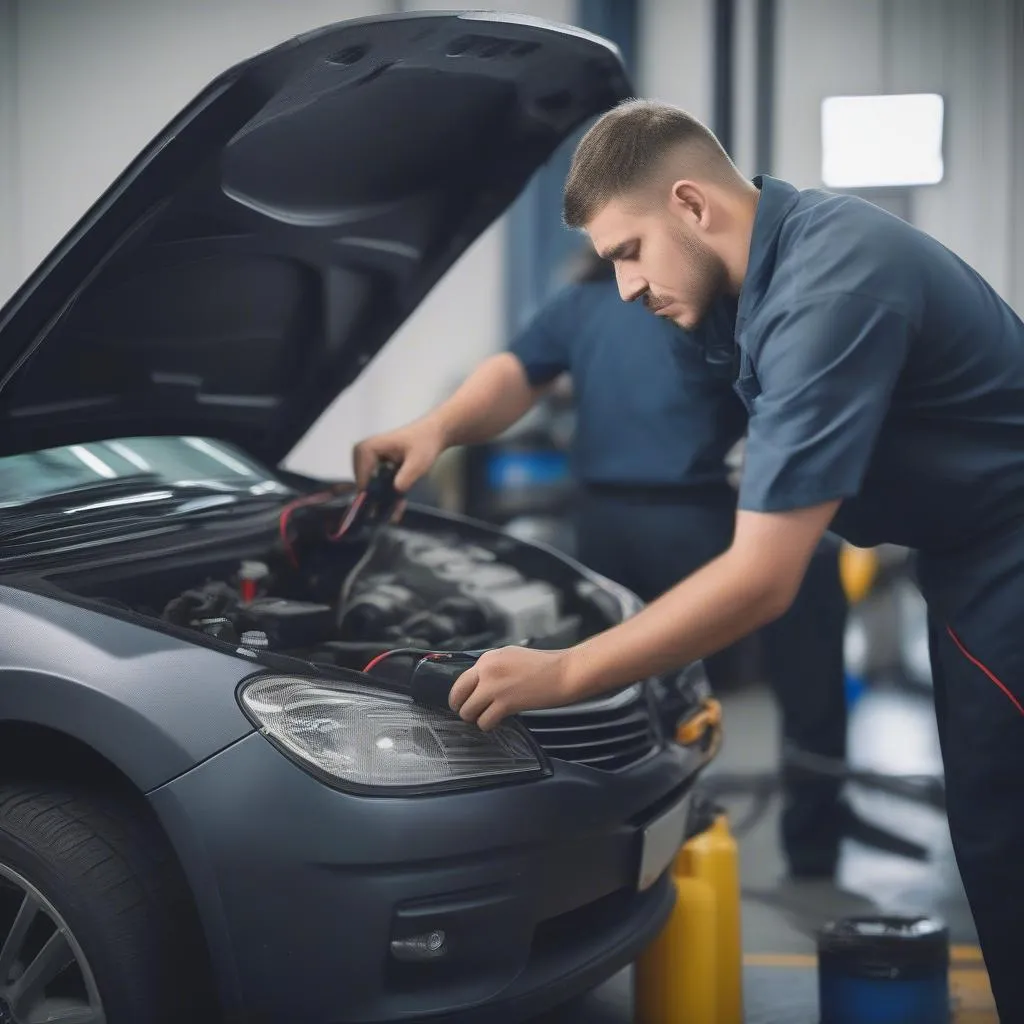Let’s face it, we’ve all been there. You’re driving your car, feeling confident and in control, when suddenly a warning light flashes on your dashboard. Your heart sinks as you see the dreaded “Check Engine” light illuminating, and your mind races with questions. What’s wrong? Will it cost a fortune to fix? Is it safe to drive?
These are all valid concerns, and often, the problem can be traced back to a failed OBD system check. But what exactly does that mean, and what can you do about it? Read on to find out!
Understanding the OBD System Check
The OBD system, or On-Board Diagnostics, is a sophisticated system built into modern vehicles. It constantly monitors various aspects of your car’s performance, looking for potential problems that could affect emissions, fuel efficiency, or even safety. Think of it as a miniature health check for your car.
From a car mechanic’s perspective, the OBD system is a lifesaver. It provides valuable insights into a vehicle’s health, allowing technicians to diagnose and repair problems quickly and efficiently. No more guessing or relying on anecdotal evidence – the OBD system provides hard data that makes troubleshooting a breeze.
Technically speaking, the OBD system works by constantly collecting data from sensors throughout the car. This data is processed by a computer, and if any abnormalities are detected, a fault code is stored in the system’s memory. This fault code is the key to understanding what’s wrong.
From a financial standpoint, a functioning OBD system can save you money in the long run. By catching small problems early, you can prevent them from developing into major, expensive repairs.
Why Did My Car Fail the OBD Check?
Now, let’s address the elephant in the room: why did your car fail the OBD system check? The reasons can be diverse and range from a simple loose connection to a more serious engine problem. Here are some common culprits:
1. Faulty Oxygen Sensor:
Imagine this: you’re trying to cook a delicious meal, but the oven thermometer is malfunctioning. You can’t tell if your food is cooked properly, and you might end up with a burnt casserole. Similarly, a faulty oxygen sensor can throw off the car’s engine management system, leading to a failed OBD check. Oxygen sensors are crucial for monitoring the amount of oxygen in the exhaust gases, which is essential for efficient combustion.
2. Clogged Catalytic Converter:
The catalytic converter is like the air purifier for your car. It converts harmful pollutants in the exhaust gases into less harmful substances. But if the converter gets clogged due to age, wear and tear, or even a faulty oxygen sensor, it can affect emissions and cause an OBD failure.
3. Bad Spark Plugs:
Spark plugs play a vital role in igniting the fuel-air mixture inside the engine. If they are worn out or damaged, they can lead to misfires, which can be detected by the OBD system.
4. Mass Airflow Sensor Issues:
Think of the mass airflow sensor as the car’s “nose.” It measures the amount of air entering the engine, providing vital information for the engine management system. A malfunctioning sensor can lead to a failed OBD check and even cause engine performance issues.
5. Loose Connections:
Sometimes, the simplest explanations are the most likely. A loose connection in the wiring harness or a faulty connector can disrupt the flow of data to the OBD system, leading to a false positive.
 OBD Scanner Tool
OBD Scanner Tool
What to Do When Your Car Fails the OBD Check
So, what should you do if your car has failed the OBD system check? Don’t panic! While it’s certainly cause for concern, it’s not the end of the world. Here’s a step-by-step guide:
- Use a Diagnostic Scanner:
Start by using a diagnostic scanner. A scanner plugs into your car’s OBD port (usually located under the dashboard) and can retrieve stored fault codes. This will give you a better idea of what’s causing the problem. A code reader or scanner for European cars like a Dealer Scanner can be very useful, especially if you’re familiar with automotive diagnostics and can understand the codes.
- Clear the Codes:
Once you’ve retrieved the fault codes, you can clear them from the system’s memory. However, clearing the codes doesn’t fix the underlying problem; it simply turns off the check engine light. If the problem persists, the light will return, and the fault codes will reappear.
- Inspect for Obvious Problems:
Take a look around your engine compartment for any obvious signs of trouble. Check for loose wires, damaged components, or any leaks that might be causing issues.
- Consult a Mechanic:
If you’re not comfortable troubleshooting the problem yourself, it’s time to call in a professional mechanic. They have the experience and expertise to diagnose the root cause of the OBD failure and perform the necessary repairs.
 Car Mechanic Diagnostics
Car Mechanic Diagnostics
Frequently Asked Questions
Q: What are some common signs of a failed OBD check?
A: Apart from the “Check Engine” light, you might notice reduced fuel economy, engine misfires, rough idle, or a decrease in power.
Q: Will a failed OBD check prevent my car from passing emissions testing?
A: Yes, in most cases, your car will fail emissions testing if it has a failed OBD check.
Q: Is it safe to drive my car with a failed OBD check?
A: In some cases, it might be safe to drive your car for a short distance, but it’s best to get the problem diagnosed and repaired as soon as possible to prevent further damage.
Q: How much will it cost to fix a failed OBD check?
A: The cost of repairs can vary widely, depending on the underlying issue. It could be as simple as replacing a faulty sensor or as complex as a major engine repair.
What’s Next?
You’ve learned about the OBD system, the common reasons for a failed check, and how to address the problem. Remember, early detection and prompt repair are key to keeping your car running smoothly and avoiding costly repairs down the road.
Want to delve deeper into the world of OBD systems? Check out our other articles on OBD diagnostics, like What is OBD II? and How to Use a Diagnostic Scanner.
If you need help with diagnostics or any other car-related issues, feel free to contact us! We offer expert technical support and a wide range of services to help you keep your car running smoothly.
Contact us today via Whatsapp at +84767531508 for 24/7 support!
